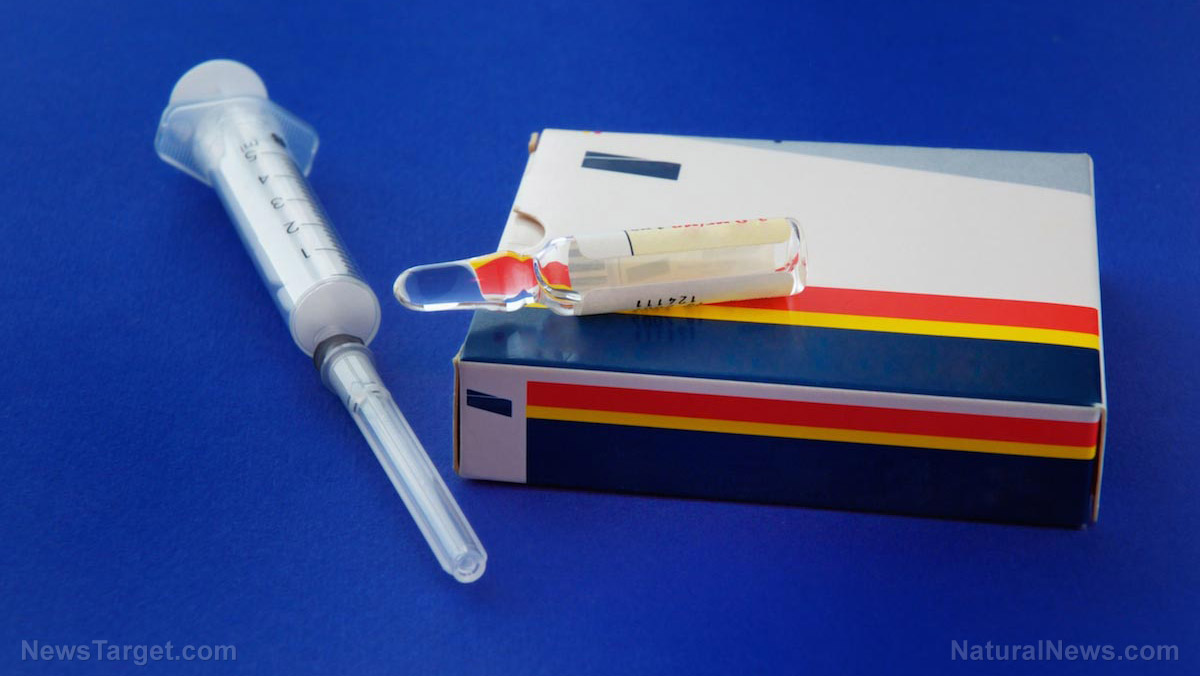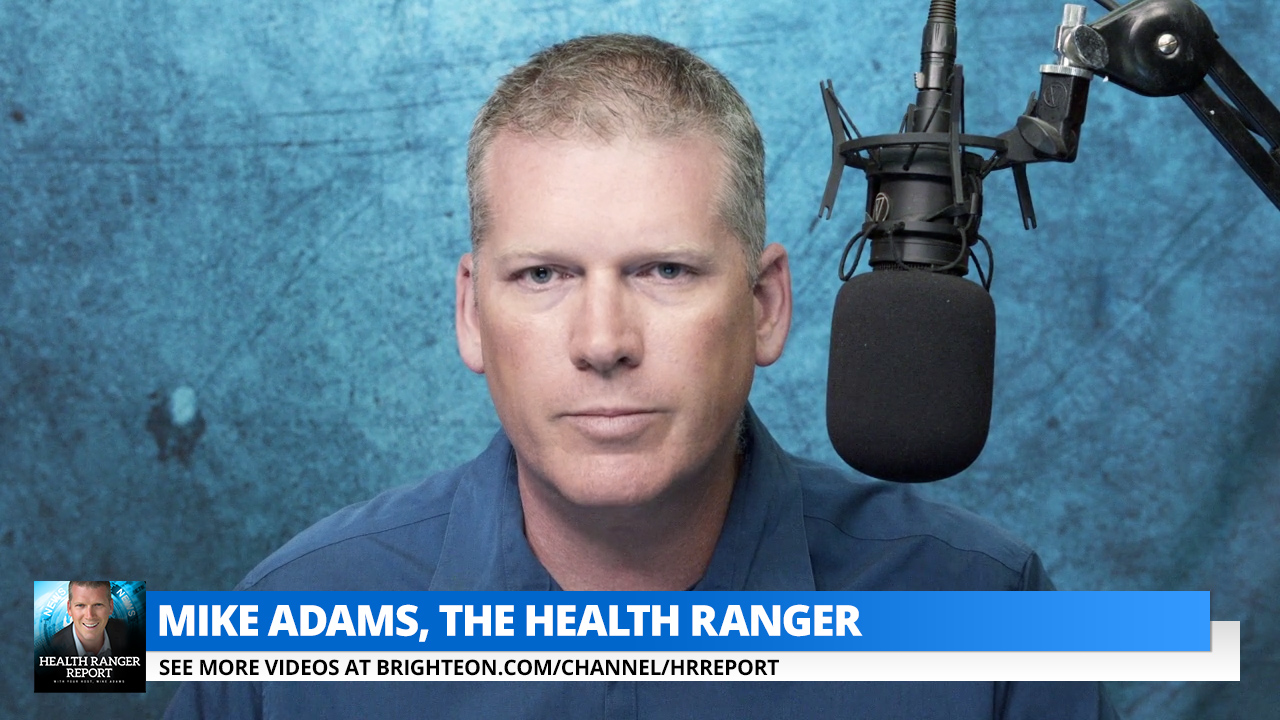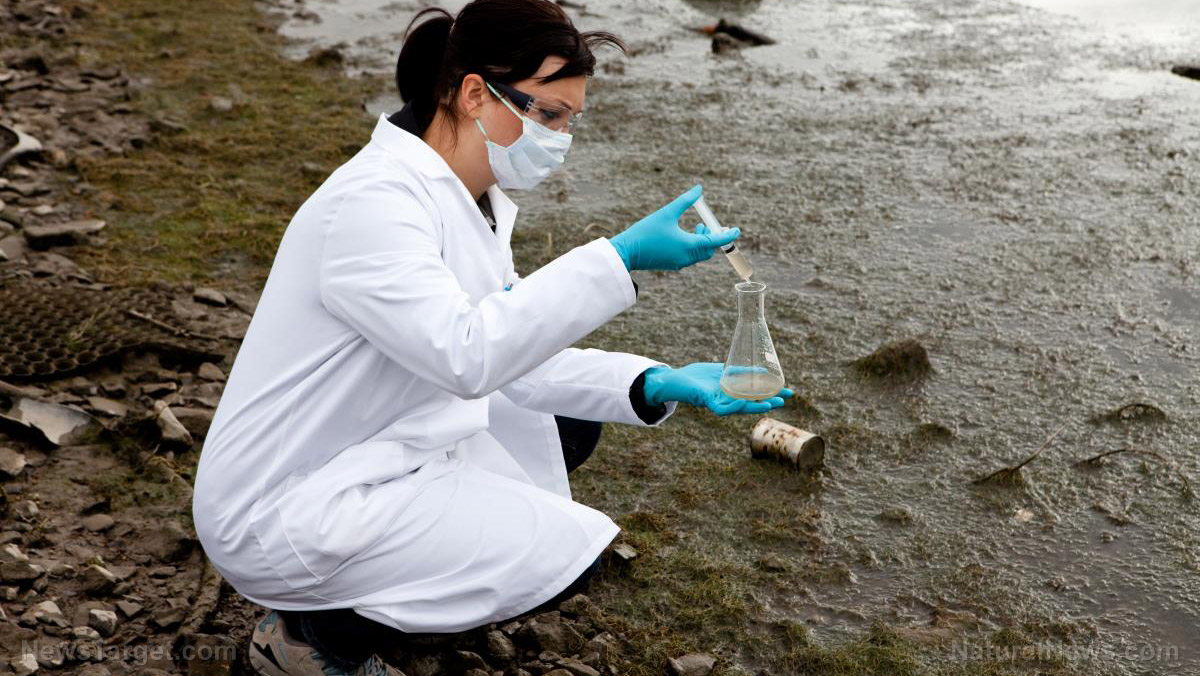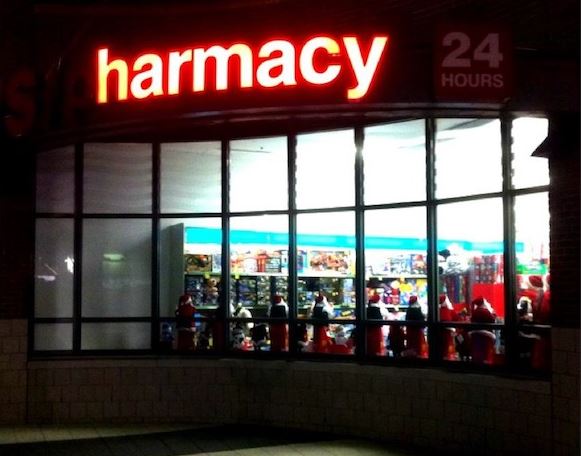Some prescription drugs can form cancer-causing chemicals in your stomach, reports study
11/22/2022 / By Evangelyn Rodriguez

A study has found that drugs prescribed for common ailments like heartburn and ulcers can turn into cancer-causing agents in your stomach.
The antacid ranitidine, sold under the brand name Zantac, was recalled by the Food and Drug Administration (FDA) in 2020 after several studies reported detecting high amounts of a probable carcinogen, N-nitrosodimethylamine (NDMA), when the drug is exposed to high humidity or high temperatures.
The study, published last year in JAMA Network Open, revealed that in the presence of a nitrite source, ranitidine can also produce large amounts of NDMA in the stomach.
This finding adds to the growing evidence of the hidden dangers of many prescription drugs. Despite getting approved by regulatory agencies, the safety of these medicines is not 100 percent guaranteed. Some, like ranitidine and common medications that are chemically similar to it, may be producing carcinogenic chemicals while they sit on store shelves, in medicine cabinets or inside a person’s stomach.
Ranitidine enables carcinogen production under certain gastric conditions
Ranitidine was a prescription and over-the-counter (OTC) drug designed to treat peptic ulcer disease, gastroesophageal reflux disease and a rare digestive disorder called Zollinger-Ellison syndrome. Ranitidine’s mode of action is to bind to histamine type 2 receptors on the surface of gastric parietal cells, the cells responsible for secreting gastric acid. Through this binding, ranitidine is able to decrease the production and secretion of gastric acid.
According to the JAMA study, ranitidine’s molecular structure putatively supports the production of NDMA, especially when certain conditions are met. For instance, an earlier study published in Water Research reported that pharmaceuticals containing amine groups like ranitidine become nitrosamine precursors when exposed to chemicals like chloramine. This is due to the formation of dichloramine, which is relevant to the formation of NDMA.
To determine if NDMA can also be produced inside the stomach of humans following ranitidine ingestion, researchers simulated the stomach environment and introduced ranitidine together with nitrite. Nitrite is a chemical often added by manufacturers to processed foods to prolong their shelf life. Carcinogenic nitrosamines are produced when nitrites react with secondary amines. (Related: Grocery stores and pharmacies are KILLING people with nitrosamines.)
The researchers found that at an acidic pH of 2.5 and with increasing nitrite concentrations, ranitidine produced high amounts of NDMA after two hours. Meanwhile, at a constant nitrite concentration, NDMA production gradually decreased with decreasing acidity (pH 1.2 to 5.5). These results suggest that ranitidine can produce NDMA in the human stomach under a range of physiologically relevant conditions, specifically when gastric acidity and nitrite concentrations are high.
Bad news: It’s not just ranitidine
Ranitidine is no longer available for prescription or OTC use, but there are other common medications that have been found to produce cancer-causing NDMA. Reports suggest that OTC antihistamines that act as histamine receptor 1 antagonists, such as doxylamine and chlorpheniramine, also generate NDMA in the presence of nitrogen sources like chloramine.
Other pharmaceuticals approved by the FDA, Health Canada and the European Medicines Agency that form NDMA include:
- Clomipramine – antidepressant used to treat obsessive-compulsive disorder (OCD)
- Diltiazem – used to treat high blood pressure and control angina.
- Erythromycin – antibiotic used to treat bacterial infections
- Metformin – used to control high blood sugar and treat Type 2 diabetes
- Nizatidine – used to treat and prevent the recurrence of peptic ulcers
- Sumatriptan – used to treat migraine and cluster headaches
- Tetracycline – oral antibiotic used to treat a wide range of bacterial infections
These prescription medications are all similar to ranitidine in that they contain amines, making them highly likely to also form NDMA in storage as well as in your stomach. Further studies will reveal the exact conditions needed for these reactions to take place.
More news about dangerous pharmaceuticals can be found at PrescriptionWarning.com.
Listen to the Health Ranger, Mike Adams, as he talks about why Big Pharma is deliberately lacing its drugs with cancer-causing chemicals in the video below.
This video is from the Health Ranger Report channel on Brighteon.com.
More related stories:
Big Pharma facing class-action lawsuit over allegedly cancer-causing heartburn drug Zantac.
Popular hypertension drug found to contain high levels of a CANCER-CAUSING ingredient.
Pfizer suspends distribution of anti-smoking drug after cancer-causing agents found in the pills.
CDC cover-up: Polio vaccine contaminated with cancer causing virus.
STUDY: Covid “vaccines” inhibit DNA repair, cause cancer.
Sources include:
Submit a correction >>
Tagged Under:
Antibiotics, antihistamines, Big Pharma, cancer criminals, digestion, health science, metformin, NMDA, pharmaceutical fraud, Prescription drugs, prescription warning, ranitidine, research
This article may contain statements that reflect the opinion of the author
RECENT NEWS & ARTICLES
PrescriptionWarning.com is a fact-based public education website published by Prescription Warning Features, LLC.
All content copyright © 2018 by Prescription Warning Features, LLC.
Contact Us with Tips or Corrections
All trademarks, registered trademarks and servicemarks mentioned on this site are the property of their respective owners.



















